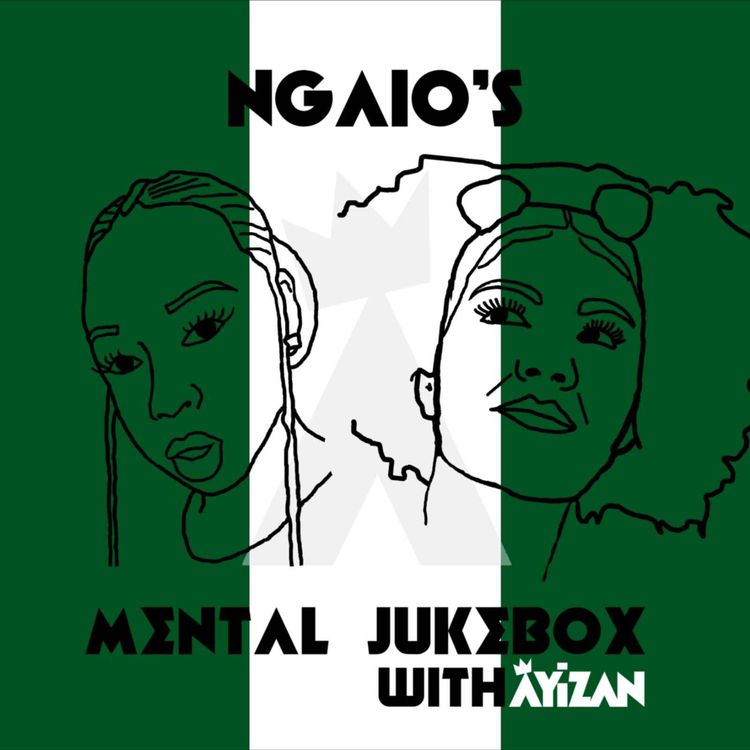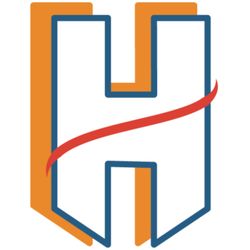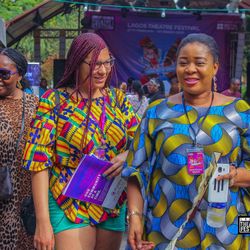Share

Mixed Bag
#EndSARS
*Trigger Warning* : Violence, extortion, police brutality
The #EndSARS movement has been on my timeline for the past 3 weeks - a couple of days before the Lekki massacre I called DJ Ayizan who I met in #Lagos in February 2020 to get a clearer understanding of what was going on. In this first episode we discuss the #EndSARS protest in Nigeria. It was updated a week after it was recorded with what is happening now. This is a very honest and frank conversation so please be aware there is graphic language
If you are aware of what's happening but aren't sure of the details, it's 35 minutes long so please do have a listen - link in bio. There's also ways you can still help, even from the #diaspora to show #Nigeria that she is not alone.
Thank you to all those who provided time/support to make this podcast happen
@longlegsdntmind / @blackgirlcon / @coach_house_studio / @aceagrams
Accounts to follow:
Feminist Coalition - @feminist.co
End SARS Response Unit - @officialendsarsresponseunit
End SARS UK - @EndSARSUK
More episodes
View all episodes

Halt Harassment - A Societal Issue
01:31:54|In this episode, I speak to the founder of Powerhouse festival and former curator of the Sistxerhood venue at Shangri La, Glastonbury. A friend of mine for years, we have always discussed the issues of being a performer / party starter in the night time industry and the dangers that come with the role. When the last restrictions were lifted the bookings came in fast for Booty Bass (my female / non binary DJ crew), which was wonderful, but in that small window I was reminded of how dangerous it is to be a Black woman in the nighttime economy. As soon as alcohol allows inhibitions to go down, respect and self-awareness goes with it. When I mentioned I was presenting a documentary on racial inequality, I was subjected to three 6ft white men drunkenly telling me much they had/did not have/believe in white privilege, accompanied by a forced bear hug. I went home in a taxi feeling dirty and drained. On another occasion, I was touched inappropriately by someone I had minus zero worries about and again went home feeling tainted and guilty.These are mild instances of unwanted touching in the grand scheme of things, so much so that I almost let them go, but I couldn't because my reserves were already low. I didn't have the energy to carry this shame also, so I spoke to the latter and left the shame with him. Regardless, I should never have felt shame in the first place. But that is what happens in these situations. Everyone's had a bit to drink, lines get blurred and suddenly you're drowning in a grey area.When venues, clubs and festivals open their doors again I want those who are marginalised to be safe. Safe from unsolicited touches, safe from name calling, safe from intimidation when we speak up for ourselves. I want us to be able to turn to whoever is in control - DJs, artists, promoters, managers, bar staff, security - and say I do not feel safe and for them to immediately jump into action without us having to go through a debate of what is or isn't considered harassment. I want the way it's dealt with to be uniform and I want those dealing with it to know what their unconscious biases are so they are able to look them in the face and put them to one side whilst they follow a standardised protocol.That’s how Halt Harassment was born - out of sheer desperation - after a friend of mine was sexually assaulted at one of my nights. For the venues who have been left to try and deal with this on a case by case basis with no support. And for the audiences who slip through the cracks because it is too exhausting to mentally prepare for the stupid questions and the weird looks for daring to show up as their full selves.I talk to Alice about her career working in the night time industry and the success of The Sistxrhood, providing a safe space at Glastonbruy festival in the party corner where only female / non-binary people could attend - no men - and how that affected the atmosphere inside the venue and invited conversation at the door. At the time and at the festival this was occasionally met with aggression but for the most part, people understood the need for the venue, to ensure those inside it felt completely relaxed and safe without having to have a consistent eye on who was around them.
3. Anna Morgan
01:00:52||Season 1, Ep. 3ANNA MORGAN is a tastemaker and connoisseur of globally minded low-end frequencies. Known for her eclectic high energy sets, genre fluid productions and dedication to breaking in new sounds, she has been quickly building an international community as fun and diverse as her style. As a curator and writer for the footwork jungle blog, she is an evangelist for 160bpm bass music. As a DJ, producer, label head and promoter she highlights urban diasporic stories by sharing her journey and the work of her community. She has been a regular on international festival lineups such as Outlook, Bass Coast, Lightning in a Bottle, and Shambhala. Her sets notably push rhythmic boundaries, while remaining dancefloor accessible. Her NYC based label Worst Behavior Recs has been covered by DJ Mag, Mixmag, Resident Advisor, Fact Mag, Inverted Audio, and was named by DJ Mag as one of the labels to watch in 2020.Links mentioned in the episode:NGAIO's SWU FM Show with Anna's guestmix (1 hour 30 mins in)How To Stop Screwing Yourself - Mel RobbinsThe power of vulnerability | Brené BrownANNA MORGAN Socials:https://soundcloud.com/annamorgan_djhttps://www.instagram.com/annamorgandj/https://www.facebook.com/AnnaMorganDJ/Anna's 2020 Live sets:20/20 London A/V set link:Basscoat Pixel FestJust JamLabel:Worst Behavior Recs BandcampThe Footwork Jungle Blog:https://soundcloud.com/footwork-junglehttps://www.facebook.com/FootworkJungle/
2. My Introduction
47:55||Season 1, Ep. 2For all the listeners, hello and thank you for joining me! I was going through my archives recently thinking about how much I miss performing live and I found this audio - an interview conducted by the wonderful Vanessa Maria with me before my EP launch where me and the band performed We Fly live for the first time. Listening back it was such a joy to hear a crowd and remember what it was like to be in a room full of people and the energy that comes with it and I realised that in particular is one of the things I've missed most in this pandemic. So I thought it would be the perfect way and time to introduce myself. In this episode, we talk about the process of writing We Fly, why it was so important for me to put my feelings to song and what it is to be a mixed race woman in Britain, looking at identity through music. It's then followed by a live performance of Blackbird (mentioned by Lydia in the last episode) which is wonderfully rough around the edges because heck it was live!It was such a special evening, looking out into the audience and singing songs written from the heart to such a beautiful crowd of diverse people. Special shout outs to Dionne who also sent me a voicenote the next day which made me cry that I also found and chucked in at the end for good measure.This was my last proper gig with the band before the world closed down and I feel very blessed to have it recorded and to be able to share it with you now for anyone who wasn't able to make it on the night.Links from the episode can be found below:But a CD!! - https://ngaioamusic.bandcamp.com/merchWatch the Blackbird Music Video - https://www.youtube.com/watch?v=lx6DgjiD1FsInstagram accounts:@ngaioamusic@nessamariaw@coachhousestudio@redstripe@redstripeuk@acegrams
1. Lagos Theatre Festival
01:00:03||Season 1, Ep. 1In February 2020 I visited Lagos, Nigeria. As a half Nigerian I had been anxious to visit for the first time to find out a bit more about who I am and where I come from. The perfect opportunity arose when I was awarded a travel bursary by the British Council to go and review the Lagos Theatre Festival.I didn’t know what to expect from the Lagos Theatre Festival; a slightly more relaxed approach than the UK for sure, but other than that I was blind. It’s not an outlandish comment to say that the UK’s theatre scene is largely monoculture. Things are gradually changing but there are still huge gaps in accessibility to the scene for those coming from diverse backgrounds. Like most industries, it’s difficult to get a foot in the door without a connection, and harder still to keep it there if unable to work for cheap or for free. This removes it as a viable workplace for those from lower socioeconomic backgrounds. The theatre industry in Lagos is currently being built back up from scratch, and with that rebuild serious considerations have gone into who the theatre is for and how to make it an environment that everyone feels comfortable in, in order for it to thrive. It is being reestablished as a social gathering for multiple groups and a place you can go to meet friends and involve yourself in the productions. I speak with one of the organisers, Lydia, about what the experience was like putting the festival together as well as what they have in store for this year's virtual festival.If you'd like to find out more, head to https://lagostheatrefestival.comBig thanks to the following for making this podcast happen:Instagram accounts:@britisharts@ngbritish@acegrams@coachhousestudio@redstripe